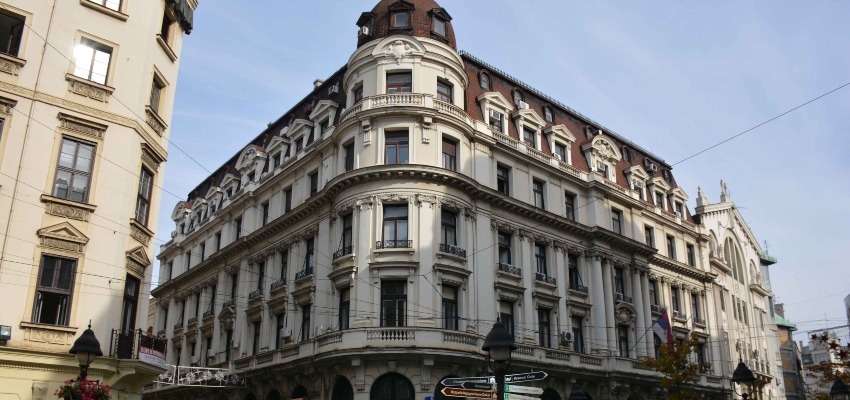Social sciences and the humanities: facing the challenges of postdisciplinarity and the market

Experiences with preparing, organizing and funding scientific studies
Over the last couple of decades the world we live in has been going through intensive change. Behind the dominant image of technological progress on the one hand, and the continuing redistribution of political power on the other, changes have been occurring on all social levels, hitting at the heart of the basic assumptions of modern culture. The deconstruction of traditional frameworks of identity, the relativization of value systems and powerful impulses of personal freedom have served as a kind of ticket to the postmodern condition which has, while aspiring to reconcile, led to a fundamental deepening of the rift between civilization as a humane creation and civilization as a system per se which largely rests on negating the universal values of a human.
Political, economic, social and cultural restructurings, as well as the evident and ambiguous crises caused by globalizing processes have affected all scientific endeavors, not least within the humanities. The rapid ways in which the world changes daily have inspired the formation of new theoretical frameworks and the expansion of thematic and methodological possibilities of certain disciplines. The abandonment of the traditional concept of disciplinarity, or rather the development of interdisciplinarity and multidisciplinarity were the logical consequences of the desire to understand the ever more complex mosaic of the present.
On the other hand, however, new approaches were often based on a complete negation of the value of previous intellectual heritage. For example, the rediscovery of the past has necessarily changed researchers’ perceptions of the present. “The crust of contemporaneity” as Jan Assman describes the lack of insight into what is relevant in a certain historical and social context, has emerged as the safest refuge from the uncertainty of historiographical tradition. At the same time, the definitive and final abandonment of the ideal of objectivity has resulted in the imperative act of auto-reflexivity often ending in abstraction or in complete intellectual nihilism caused by the impossibility of truly knowing the object of study.
Some authors refer to this post condition in scientific thought with the term “postdiciplinarity”. Some consider postdisciplinarity to be a window of opportunity for the formation of a holistic approach to the study of people, societies and cultures, while others consider it another attempt at finding (or embedding) values in the knowledge about them.
Of course, this post condition within scientific thought implies the discovery of ideological subtexts within everything which is considered natural, given and normal in a certain cultural context. Furthermore, it is based on the abandonment of truth, or rather, the aspiration toward knowledge which is free of absolute and final conclusions and at least some warranty of continuity.
Keeping in mind the processes mentioned above, it seems as though the changes which the concept of knowledge has gone through are not solely the consequences of liberation from scientific dogmas and the expansion of disciplinary boundaries, but also that they occurred under the latent influence of general processes of mercantilization which accompanies new global economic and political ideologies. This observation is certainly tied in with the glimpses of audit culture emergent within the scientific world. Essentially, audit culture imposes the imperatives of market economy on areas which until fairly recently haven’t been, or still aren’t considered competitive within the market economy of knowledge, nor the market economy in the classical sense.
Investments into the cultural capital of civilization are evidently not a priority within the framework of global economy. It can even be said that the very survival of such investments is being threatened, and not only due to outside intervention, but also due to a specific form of auto-marginalization which occurred as the consequence of the conditions described above.
The SOCIAL SCIENCES AND THE HUMANITIES: FACING THE CHALLENGES OF POSTDISCIPLINARITY AND THE MARKET roundtable has been devised as a platform for conversation and exchange of experiences between noted scientists from different countries (Argentina, Russia, Sweden, Austria, Hungary, the Czech Republic, Slovakia). We believe that all the participants, and especially the organizers of the event will greatly benefit from hearing:
- What are your thoughts on the challenges the humanities are facing today?
- How would you characterize the relationship between the state and scientific institutions in your country?
- What sources of funding are available for scientific study?
- Which institutions and in what ways conduct studies in the humanities?
- ho are the people who order these projects, and who are the people who undertake the research?
- Are interdisciplinary networks established on institutional or individual levels?
- How are the research topics for projects chosen, how are they registered and how long do they last?
- Is there any kind of registry of the most successful interdisciplinary projects in the last decade or so?
- Is there any kind of “fundamental research” which is funded over long periods of time and is considered to be of national or any other kind of priority?
- In what way are the results of scientific work valued? Is citation measured? And are there any other quantitative methods present?
- Are the results of scientific inquiry applied within the sphere of cultural or social politics?
- Is it possible to speak of more or less frequent, key themes?
- Are the humanities needed in the modern world?
Based on your own experiences, we would like you to address these questions, or to point out some other issues pertaining to the topic, through conversation.
In front of the round table organizing team,
moderator
Check out more photos from the conference on our Facebook page.